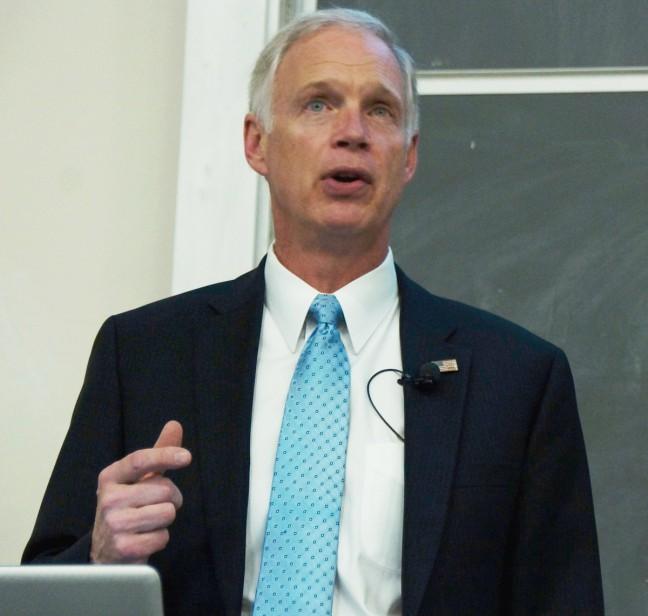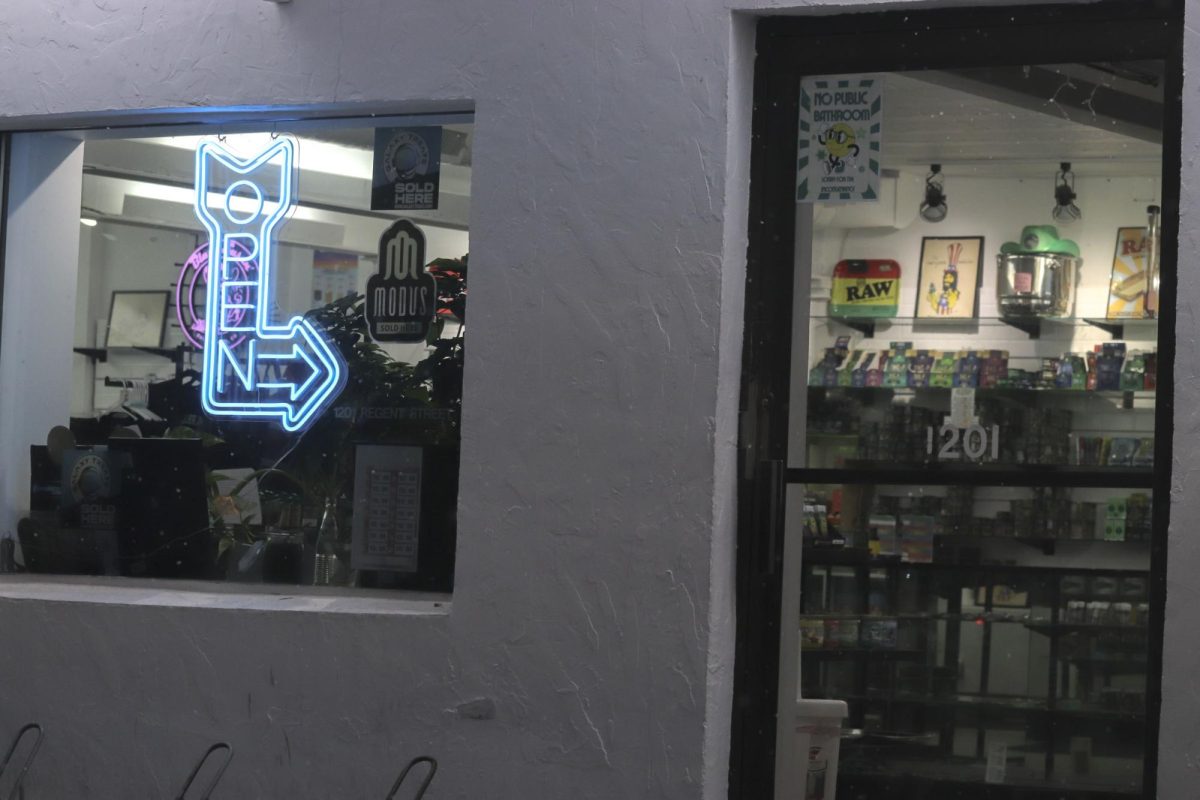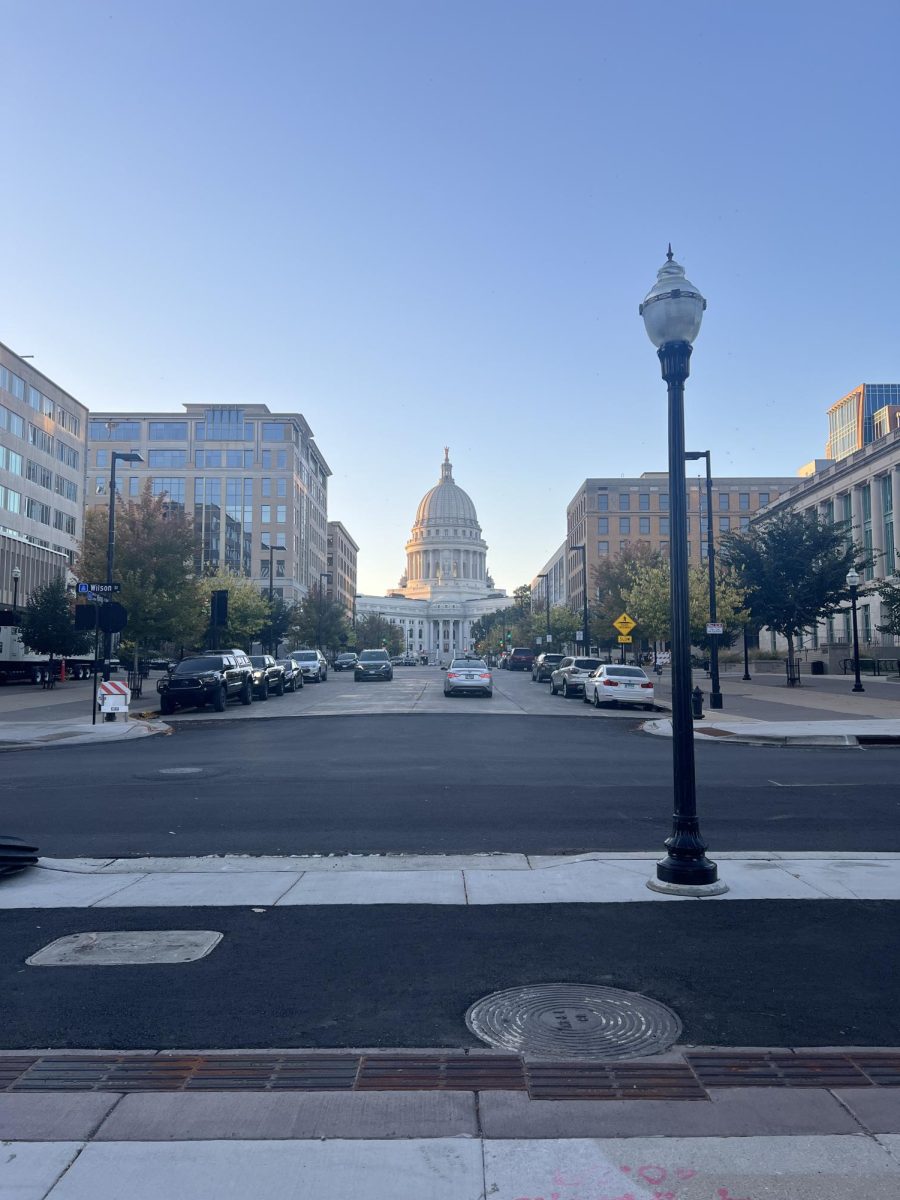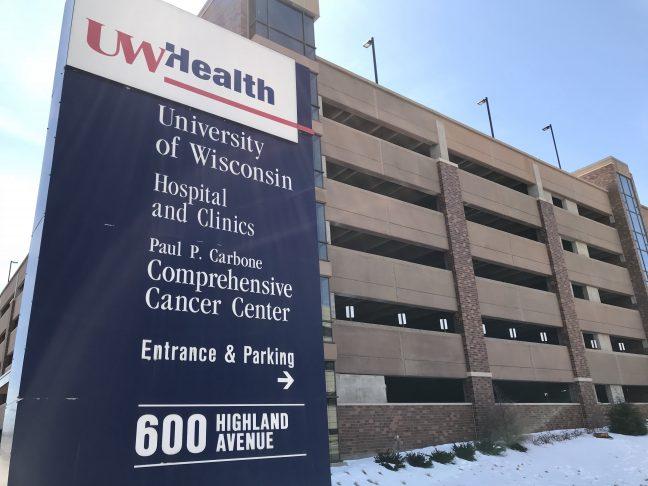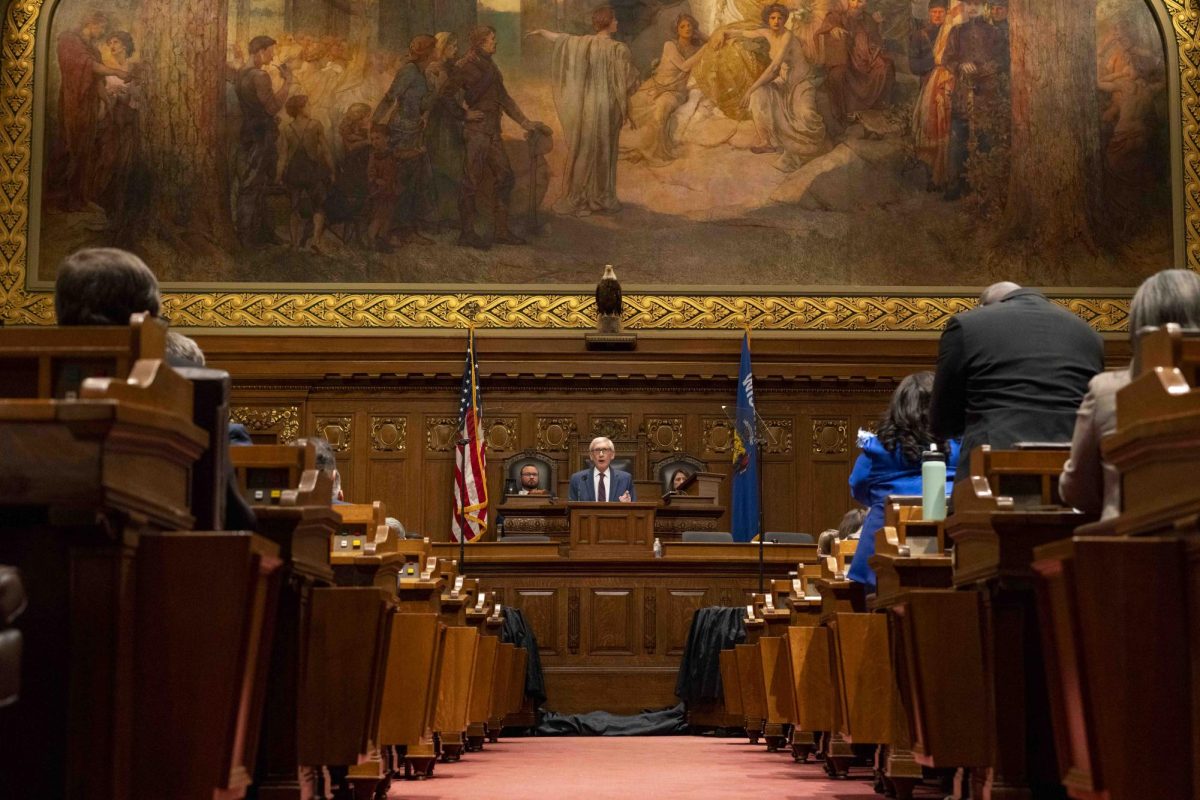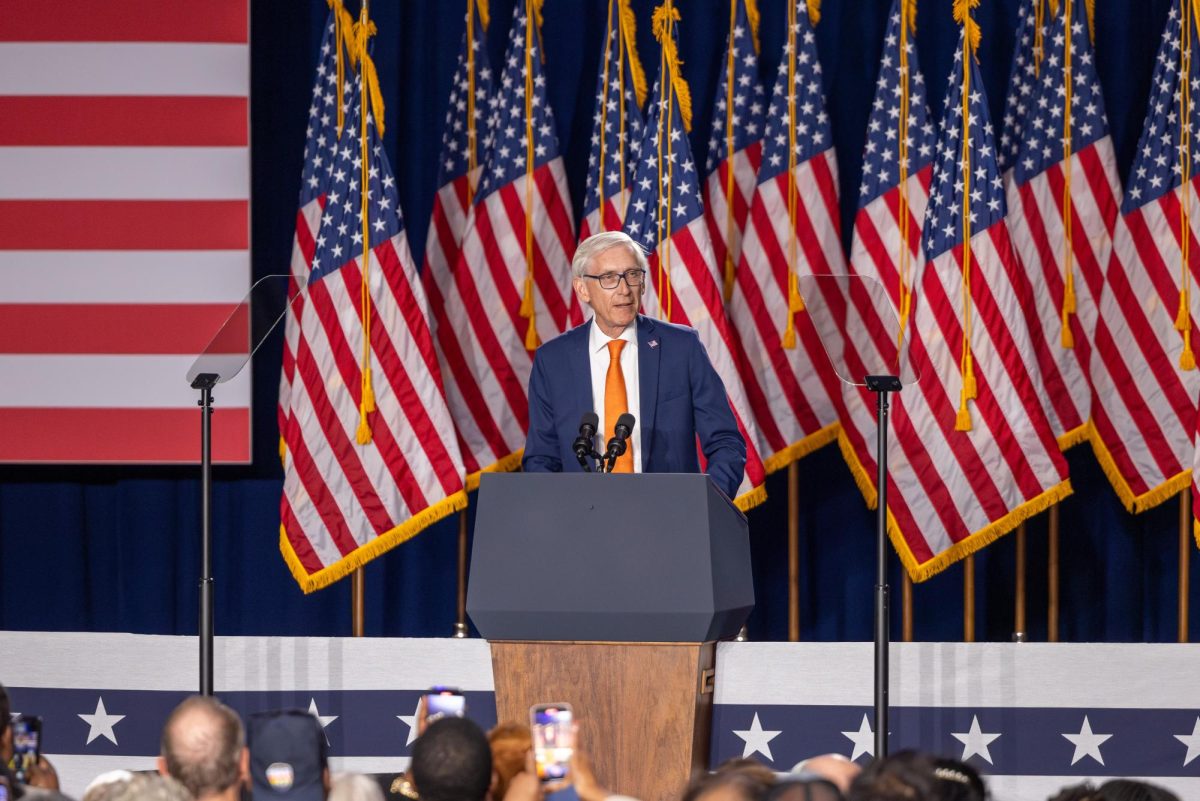U.S. Sen. Ron Johnson, R-Wis, tested positive for COVID-19 Friday, making him the third GOP senator to contract the virus in the past 48 hours.
Johnson announced that he tested positive this morning, according to The Cap Times. Johnson was exposed to someone Monday who tested positive for COVID-19, according to an email statement from Johnson’s communications director.
The statement from Johnson’s office said he was exposed Sept. 29 to his chief of staff who tested positive after their encounter. Johnson tested negative Wednesday and attended an event in Ozaukee before finding out Friday afternoon that he tested positive, according to Channel 3000.
Johnson is experiencing no symptoms, according to the communications director’s statement. In an interview with Wisconsin journalists this morning, Johnson said he felt normal.
“I’m not sick,” Johnson said in an interview with Wisconsin reporters this morning. “I have no symptoms. I certainly didn’t anticipate testing positive, so there was no reason to quarantine.”
In the meeting with journalists, Johnson said while he thinks masks can help reduce risks, they are “certainly not a cure-all,” according to The Cap Times.
Johnson was one of at least three senators to test positive for COVID-19 in the past 48 hours, according to NPR. Following the president’s positive diagnosis, Johnson, Sen. Mike Lee, R-Utah, and Sen. Thom Tillis, R-N.C., have all tested positive.
Following the GOP senators’ diagnosis, Majority Leader Mitch McConnell announced Saturday that he will try to delay the Senate’s return to Oct. 19 by obtaining a consent agreement, according to NPR.
McConnel said the Senate Judiciary Committee will continue its confirmation proceedings for Supreme Court Nominee Amy Barrett on Oct. 12. Democrats have not yet agreed to a delayed return to the Senate, according to NPR
“If it’s too dangerous to have the Senate in session, it is also too dangerous for committee hearings to continue,” Minority Leader Chuck Schumer said in a statement to NPR.


